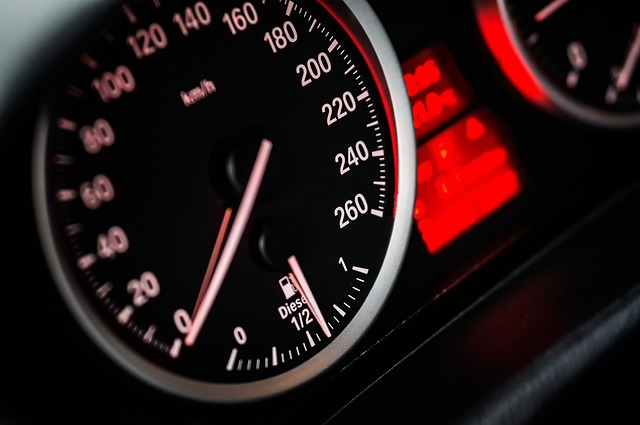When a UK consumer reaches the end of a Personal Contract Purchase (PCP) agreement, they must decide on their vehicle's next step: returning it, buying it outright, or using its value as part-exchange for a new PCP deal. It's crucial to assess the car's condition, outstanding finance, and potential equity when making this decision. Should there be issues with the vehicle or misconduct by the finance company, a PCP claim through a reputable PCP claims UK firm can assist in resolving any shortfall or mis-selling concerns. Consumers should carefully review their contract terms and correspondence to understand their rights and options, as well as to ensure compliance with regulatory standards. A PCP claim UK service can provide guidance and support for unresolved vehicle issues or if there has been misconduct by the finance company. It's important to be well-informed about the specifics of your PCP agreement to make an informed decision that fits your financial situation and future car requirements. Preparing early for the final payment is advisable to avoid additional charges, and keeping all records related to your PCP claim is essential for a smooth transition at the end of the contract.
Navigating the end of a Personal Contract Purchase (PCP) agreement can present unique financial considerations for UK consumers. This article demystifies the process, guiding you through your options for handling PCP claims in the UK. Whether you’re looking to purchase the car outright or opting for a different vehicle, understanding the implications and steps involved is crucial. We delve into assessing your position, exploring strategic approaches to manage your PCP claims effectively, ensuring you make an informed decision at the end of your agreement.
- Navigating the Conclusion of PCP Agreements: Understanding Your Options for PCP Claims in the UK
- Assessing Your Position: What to Consider When Finalizing PCP Claims in the UK
- Strategies for Handling PCP Claims at the End of Your Agreement: A Guide for UK Consumers
Navigating the Conclusion of PCP Agreements: Understanding Your Options for PCP Claims in the UK

When a Personal Contract Purchase (PCP) agreement comes to an end in the UK, it’s crucial for consumers to understand their options regarding any remaining equity or outstanding finance on their vehicle. As you approach the final instalment of your PCP plan, several pathways become available. You may choose to hand back the car, pay the optional final balloon payment to own the vehicle outright, or part-exchange it for a new model while settling the residual value.
For those who opted for a PCP claim through a reputable firm specialising in PCP claims UK, the process at the end of the agreement is similarly straightforward. If your vehicle has experienced issues that have not been fully rectified during the term of the PCP, or if you’ve found yourself in a situation where the finance company has not followed the correct protocols, a claim can be made to address any shortfall or mis-selling concerns. Upon reaching the end of your PCP agreement, it’s advisable to review the terms and conditions of your contract, as well as any communication from your lender. This will help you determine the best course of action, whether that involves exercising your rights under a PCP claim or making a decision about the vehicle based on your financial situation and personal needs. Always ensure you’re fully informed of the specifics of your PCP agreement and explore all available options to make an educated choice at the conclusion of your contract.
Assessing Your Position: What to Consider When Finalizing PCP Claims in the UK

When finalizing Personal Contract Purchase (PCP) claims in the UK, it’s crucial to meticulously assess your position within the agreement. This involves understanding the remaining balance on your PCP, the future value (balloon payment), and the current market value of your vehicle. As you approach the end of your PCP contract, you have three main options: purchasing the car outright, returning it, or upgrading to a new model. Each option requires careful consideration of factors such as the condition of the car, outstanding payments, and potential equity. For those opting to own the vehicle, ensure you have the funds to settle the final payment and consider arranging this ahead of time to avoid any late fees. If returning the car, check the contract terms for any mileage or damage restrictions that could affect the settlement figure. Lastly, if upgrading, calculate the future value accurately to avoid unexpected costs and understand the new PCP agreement’s terms before committing. Utilizing tools and resources provided by financial institutions can aid in making an informed decision that aligns with your budgetary needs and vehicle preferences. Remember to keep track of all communications and documentation related to your PCP claim to ensure a smooth process throughout the UK’s regulatory framework for such agreements.
Strategies for Handling PCP Claims at the End of Your Agreement: A Guide for UK Consumers

Navigating the end of a Personal Contract Purchase (PCP) agreement can be a complex process, but with the right strategies, UK consumers can manage their PCP claims effectively. When your PCP agreement concludes, you have several options for handling the remaining balance and the value of your car. Firstly, consider the condition of your vehicle; if it’s in good shape and you wish to keep it, you may opt to pay off any outstanding finance and own the car outright. Alternatively, if you prefer to upgrade to a newer model, you can part-exchange your current vehicle towards the value of the remaining balance on a new PCP agreement. This approach not only simplifies the financial settlement but also allows you to benefit from any equity built up in your car.
For those looking to exit their agreement without keeping the car, settling the final payment and handing back the keys is a straightforward option. It’s important to notify your finance provider of your intention to do so, as there may be terms regarding the return of the vehicle. Additionally, be aware that you may still be responsible for any negative equity if the car’s value at resale is less than the outstanding amount owed. To avoid unexpected costs, thoroughly review the terms of your agreement and understand the potential financial implications beforehand. Understanding your rights and responsibilities under a PCP contract is crucial for a smooth transition at the end of your agreement. Consumers in the UK should familiarize themselves with the processes for settling PCP claims to ensure they make informed decisions that align with their financial situation and future car ownership plans.
When reaching the conclusion of a Personal Contract Purchase (PCP) agreement in the UK, it’s crucial for consumers to be well-informed about their options. This article has outlined the key considerations and strategies for managing PCP claims effectively at the end of your contract. By understanding the process of finalizing PCP claims within the UK framework, you can make informed decisions that align with your financial situation and desired outcome—be it returning the vehicle, paying the optional final payment to own it outright, or opting for a new agreement. Remember to carefully assess your position and explore the various avenues available to ensure a smooth transition at the end of your PCP contract. With the guidance provided, managing your PCP claims should be less daunting, allowing you to navigate this financial landscape with confidence.
